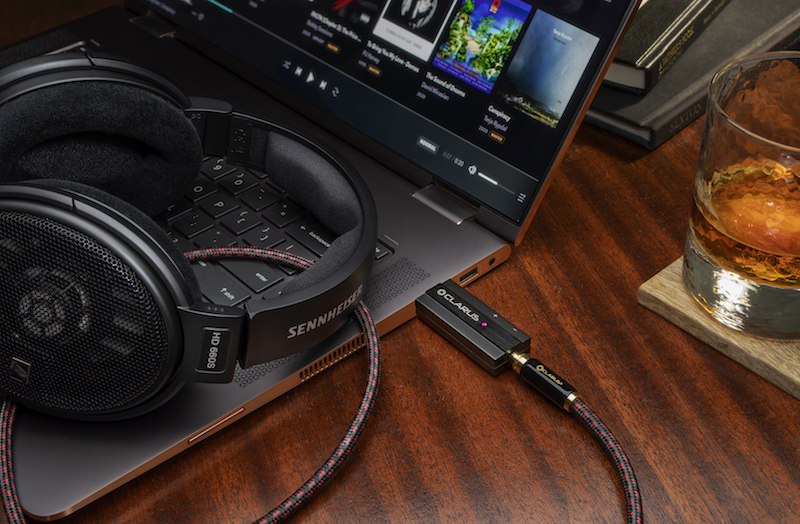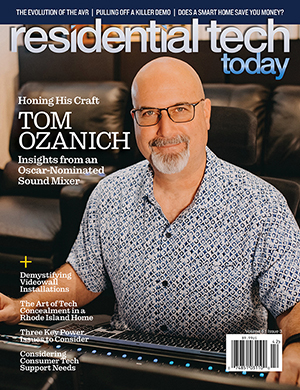The new Clarus CODA USB-DAC includes a headphone amplifier and an MQA renderer, for connecting to the global streaming service, TIDAL and Xiami Music in China, which provide guaranteed delivery of original sound recordings.
It features the latest in USB-DAC technology that provides ultra-low distortion, more detail, greater dynamics, and a bigger sound stage.
Designed to be used with a smartphone, tablet, or computer, the Clarus CODA USB-DAC has a two-button volume control and a choice of three roll-off filters.
The heart of the Clarus CODA USB-DAC is a New Legendary ESS Professional Series SABRE DAC audio converter with Hyperstream II modulation that provides improved sound stage and clarity.
QUAD DAC Technology delivers 124dB DNR and -112dB THD+N. The low-power USB controller supports USB 1.1 and 2.0 and can natively handle 32-bit 384 kHz PCM and DSD up to 5.6MHz.
The Clarus CODA USB-DAC class G headphone amplifier provides class AB performance with ultra-low power consumption optimized for mobile use. The 2.0Vrms output voltage will provide plenty of power for the most demanding headphones and class G ensures it won’t drain your battery.
LED indicator lights up in different colors to represent the audio sample rate – blue for standard definition, green for high definition, and magenta indicating MQA rendering.
The two 64-step volume control buttons feature zero switching noise as well as provide a method of choosing one of three digital roll-off filters.
The Clarus CODA USB-DAC software is upgradeable. As technology changes Clarus will provide improvements via firmware updates available on their website.
Jay Victor designed the CODA with the new SABRE DAC and these audiophile features:
- A high-precision audio-grade clock to reduce jitter
- Audio-grade film capacitors
- 1% tolerance metal film resistors and tight power supply regulation using multi-stage, low-noise, high-ripple rejection CMOS-based regulators
“With any DAC, the printed circuit board layout is critical for low noise and best performance,” Victor said. “Because of the small enclosed space, we used a high grade, high temperature PCB material to eliminate any overheating problems. It’s that level of attention to detail that enables CODA to provide a very enjoyable listening experience.”
The Clarus CODA retails for $300 and ships on December 1, 2020.








